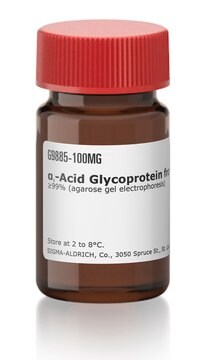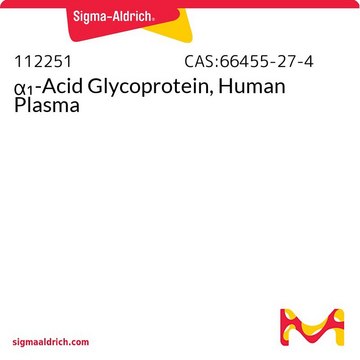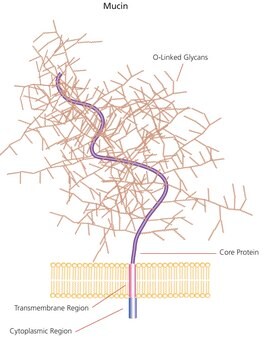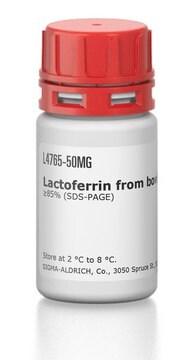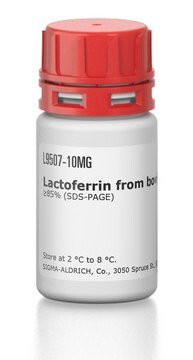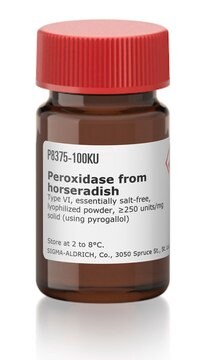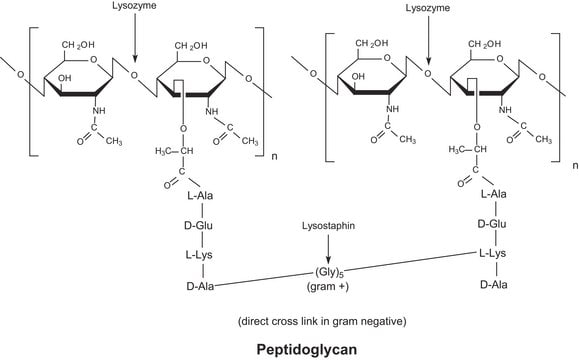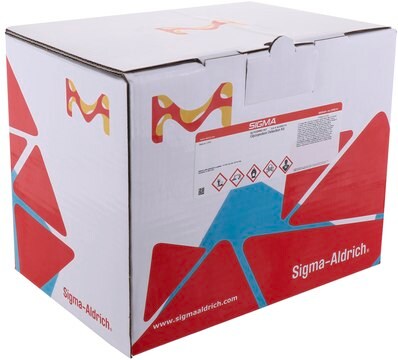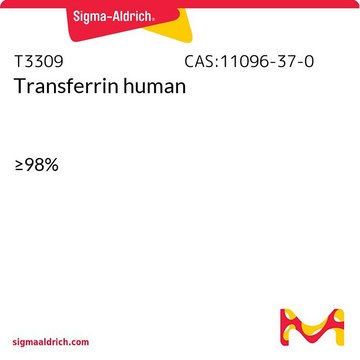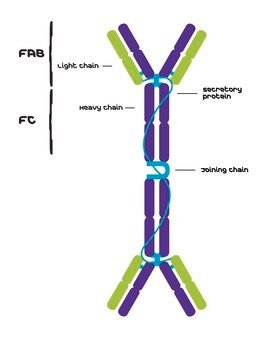G3643
α1-Acid Glycoprotein from bovine plasma
≥99%
Synonim(y):
Orosomucoid
About This Item
Polecane produkty
pochodzenie biologiczne
bovine plasma
Poziom jakości
Próba
≥99%
Postać
powder
metody
electrophoresis: suitable
mass spectrometry (MS): suitable
numer dostępu UniProt
temp. przechowywania
2-8°C
informacje o genach
bovine ... ORM1(497200)
Szukasz podobnych produktów? Odwiedź Przewodnik dotyczący porównywania produktów
Opis ogólny
Zastosowanie
- in mass spectrometry analysis to confirm the presence of Neu5Ac and Neu5Gc distribution in human and bovine AGP respectively
- for pretreating the microvessel before perfusing the MDA-MB-231 cells for tumor adhesion studies
- in the composition of tear model
- as a reference in sodium dodecyl sulphate-polyacrylamide gel electrophoresis (SDS-PAGE)
Działania biochem./fizjol.
Kod klasy składowania
11 - Combustible Solids
Klasa zagrożenia wodnego (WGK)
WGK 3
Temperatura zapłonu (°F)
Not applicable
Temperatura zapłonu (°C)
Not applicable
Środki ochrony indywidualnej
Eyeshields, Gloves, type N95 (US)
Certyfikaty analizy (CoA)
Poszukaj Certyfikaty analizy (CoA), wpisując numer partii/serii produktów. Numery serii i partii można znaleźć na etykiecie produktu po słowach „seria” lub „partia”.
Masz już ten produkt?
Dokumenty związane z niedawno zakupionymi produktami zostały zamieszczone w Bibliotece dokumentów.
Klienci oglądali również te produkty
Produkty
The use of PNGase Fast denaturing buffer and enzyme yielded results similar to a conventional 20-hour protocol with overnight digest while reducing workflow time to about 1 hour with a 15-minute digest.
Nasz zespół naukowców ma doświadczenie we wszystkich obszarach badań, w tym w naukach przyrodniczych, materiałoznawstwie, syntezie chemicznej, chromatografii, analityce i wielu innych dziedzinach.
Skontaktuj się z zespołem ds. pomocy technicznej